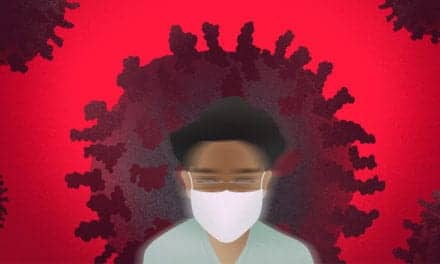The complexity of healthcare is increasing at a rapid pace and directly affects the day-to-day work of physicians as they care for patients. In addition to mounting complexity, the administrative and cognitive burdens on physicians may contribute to an increased risk of physician burnout.
A new study in the February issue of The Joint Commission Journal on Quality and Patient Safety, “Physician Task Load and the Risk of Burnout Among U.S. Physicians in a National Survey,” evaluated whether task load correlated with burnout scores in a large national study of U.S. physicians between October 2017 and March 2018.
Task load was measured by the National Aeronautics and Space Administration (NASA) Task Load Index (TLX). The NASA-TLX was chosen to evaluate physician task load (PTL) due to its robust validation and use across many industries, including healthcare, over the past 30 years. The domains in the PTL were mental, physical and temporal demands, and perception of effort. Burnout was measured using the Emotional Exhaustion and Depersonalization scales of the Maslach Burnout Inventory, and a high score on either scale was considered a manifestation of professional burnout.
Findings showed the mean PTL score, varying by specialty, was 260.9/400. Specialties with the highest PTL scores were emergency medicine, urology, anesthesiology, general surgery subspecialties, radiology, and internal medicine subspecialties. Researchers also found the most common reported symptoms of burnout included high emotional exhaustion (38.8%) and depersonalization (27.4%). At least one symptom of burnout was reported in 44% of respondents.
A significant association was found between PTL and burnout. For every 40-point (10%) decrease in PTL, there was 33% lower odds of experiencing burnout. The researchers conclude that the strong association between PTL and burnout may provide a framework to approach the practice environment and reduce burnout.
“Cognitive load was rapidly increasing in healthcare prior to the COVID-19 pandemic, which has accelerated strain on an already overloaded system,” says Elizabeth Harry, MD, the study’s corresponding author and senior director of clinical affairs at University of Colorado Hospital, as well as associate professor of internal medicine at University of Colorado School of Medicine. “Attention to the risk of burnout associated with task load is more critical today than ever before and offers healthcare systems a measurable target for systemic improvement initiatives.”
“Determining how to best unburden cognitive load may require collaboration with experts in operational and implementation science,” adds an accompanying editorial by Jonathan Ripp, MD, MPH. “Healthcare institutions will need to prioritize capturing metrics that shed a light on ‘hot spot’ high cognitive load areas within a system where appropriate interventions should be directed.”






